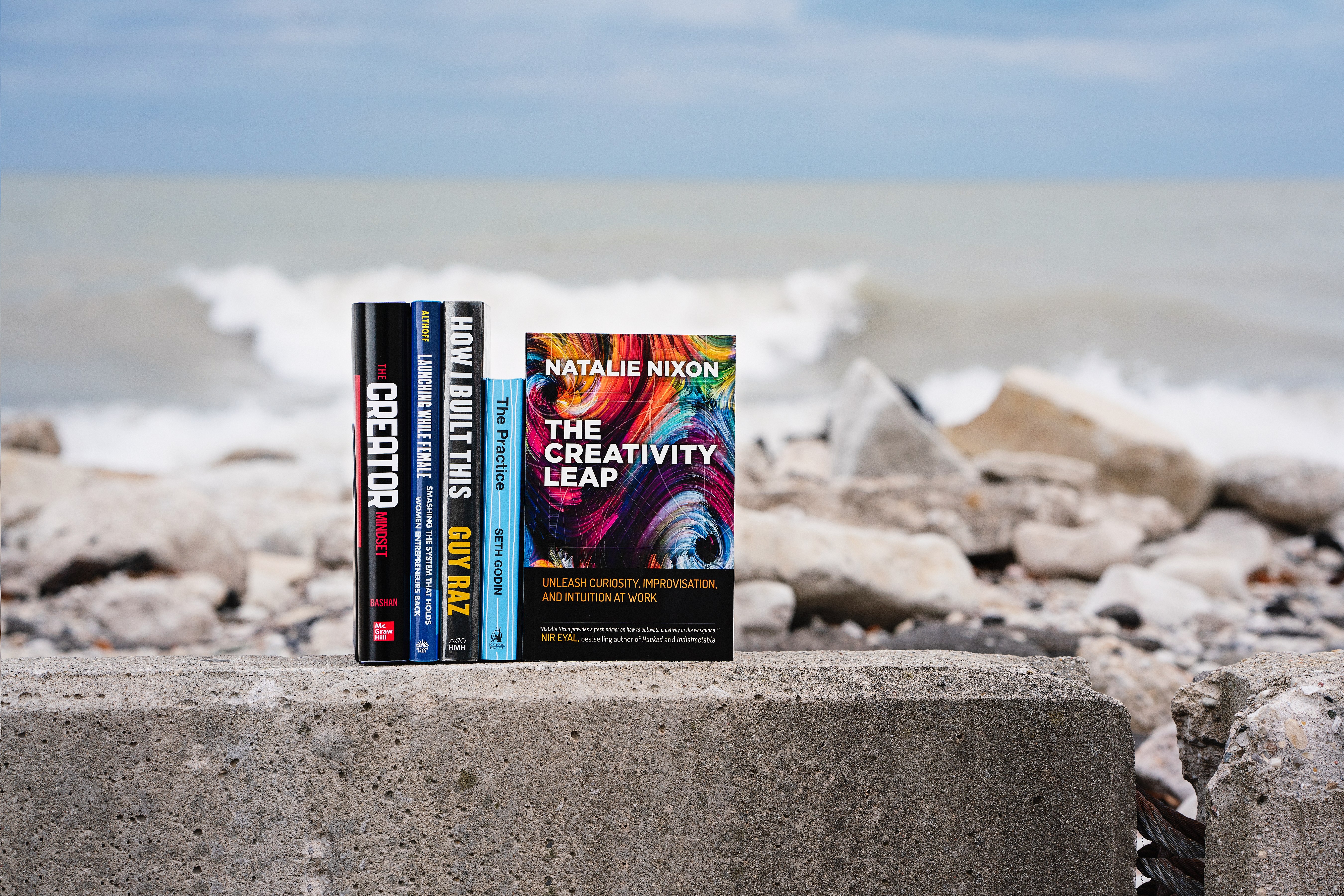The 2020 Porchlight Innovation & Creativity Book of the Year
Innovation and creativity are essential to our work, home, and work-from-home lives right now. We can't continue following our same routines when the rest of the world has changed so much. Even within our own homes, we don't exist in a bubble. With creativity, we can see a new way of living, and with innovation, we can follow through and make positive change happen. The books I chose this year offer hope and advice at a very human level, encouraging us to embrace the unexpected and giving us the creative capacity to do so. The five finalists in the category were:
- The Creator Mindset: 92 Tools to Unlock the Secrets to Innovation, Growth, and Sustainability by Nir Bashan, McGraw-Hill
- How I Built This: The Unexpected Paths to Success from the World’s Most Inspiring Entrepreneurs by Guy Raz, Houghton Mifflin Harcourt
- Launching While Female: Smashing the System That Holds Women Entrepreneurs Back by Susanne Althoff, Beacon Press
- The Practice: Shipping Creative Work by Seth Godin, Portfolio
Each of the author's unique voice and experience shines through, offering a sort of mentorship to their readers. Guy Raz shares the informative and sometimes emotional stories of entrepreneurs who didn't expect to be entrepreneurs. Nir Bashan emphasizes the natural ups and downs of the entrepreneurial journey (and our everyday life journeys), reminding us that "big victories mean nothing unless we stop to recognize the little victories that got us there along the way." Seth Godin provides short, sharp tidbits of inspiration, offering examples of architects, authors, chocolatiers, scientists, critics and the critiqued, alike, intentionally accessing creativity. Susanne Althoff lays out the unfortunate statistics of inequality in the startup world, but she makes it clear why and how innovation should begin with a culture of embracing not just different ideas but different people, encouraging them to translate their unique perspectives into problem solving, forward-looking businesses. And finally, the category winner, Natalie Nixon, in her book The Creativity Leap, embraces wonder and rigor in such a worldly way, it feels sacred.

The Creativity Leap that Natalie Nixon advocates for is not a specific action or endeavor but rather an ability we can all hone and practice. It is what we all need to push our thinking across the chasm between a complex problem and into a place of improvement and innovation.
Nixon's blended background in anthropology and fashion has widened her view of creativity in business, and she shares this insight. In order to see the world more fully, we must be able to comprehend complexity and the creative process. Scientifically, complex systems "are not predictive, are hard to manage, and require perspective and regular experimentation." Nixon teaches us to be and think adaptively, honing our "CQ" (Creative Quotient) through inquiry, improvisation, and intuition.
The Creativity Leap also demonstrates another negative outcome of othering people, as our culture and society have done for too long in so many ways.
Sadly, creativity has been ghettoized and siloed in the arts. This is not fair to artists, and it isn't beneficial to our society at large […] Currently, we have a tech crush. We are obsessed with big data, artificial intelligence, and virtual reality while forgetting that humans are at the beginning and end of all those data points.
The creativity leaps that Nixon wants us to make are not as swift as a physical leap, but more like slow, steady, and sometimes rigorous processes. She relates the practice of creativity to things like the "chaordic [meaning chaotic and ordered] communities" of beehives, language translation, and Jazz. "Jazz music thrives on both the chaos and the order emblematic of chaordic systems." And Nixon does more than just toss around creative metaphors. Using 56 interviewees of diverse work backgrounds and including exercises at the end of each chapter for you and for your organization, The Creativity Leap presents creativity from so many perspectives that it's impossible to deny that creativity and innovation are accessible and inherently human.



